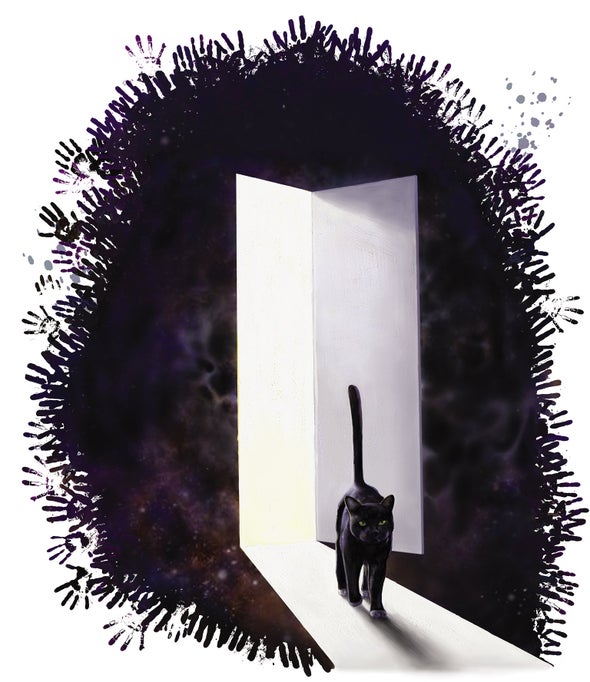In the 1954 World Series, Willie Mays of the New York Giants made what many consider the greatest catch in baseball history on a long fly ball to straightaway center-field hit by Vic Wertz of the Cleveland Indians. Broadcaster Bob Costas talked about the catch for the Ken Burns documentary series Baseball: “It was more than just a great catch. It was a catch no one had ever seen before ... it was a play that until that point was outside the realm of possibility in baseball.” Mays in that moment thus expanded baseball into previously nonexistent territory, much like the universe expands—and not into anything, for there was nothing there before.
On the other hand, nah. Indians' pitcher Bob Feller, who watched the play from the dugout, followed Costas on the episode. “It was far from the best catch I've ever seen,” he says. “It was a very good catch. We knew Willie had the ball all the way.”
I thought of this sequence more than once when I attended a conference in 2019 at the New School's Center for Public Scholarship here in New York City billed as “Unknowability: How Do We Know What Cannot Be Known?” Filled with doubt, I felt fortunate to simply find the auditorium.
Discussing the unknown, Columbia University biologist Stuart Firestein cited what he called an apocryphal saying: “It's very hard to find a black cat in a dark room, especially when there is no cat.” He continued, “I think this is exactly how science works and how it deals with the so-called unknowable. We stomp around in black rooms and eventually ... we may find this critter or we may find some other critter entirely. But once having decided the room is either empty or full of a cat, we simply move on to the next dark room.”
He also cited James Clerk Maxwell as having said, “‘Thoroughly conscious ignorance is the prelude to every real advance in science.’” Firestein went on, “And so this is the kind of ignorance that I'm talking about, not the common usage of the word ‘ignorance,’ not stupidity or willful indifference to fact or logic—you know who I'm talking about. But rather this thoroughly conscious kind of ignorance that can be developed .... The big question for me really is we've gained some knowledge, what does one do with that knowledge? And the purpose of that knowledge in my opinion is to create better ignorance, if you will. Because there's low-quality ignorance and high-quality ignorance ... science, in my opinion, is the search for better ignorance.” Presumably, as the quality of ignorance increases, so does the level of associated bliss.
After University of Cambridge mathematician John Barrow pointed out that “the unknown ... is of course a vast, untapped field—rather like studying everything that is not a banana,” he mentioned that beyond unknown unknowns lies the truly unknowable. “[Kurt] Gödel announced that ... if you have a system that's got a finite number of axioms ... and if it's complicated enough to include arithmetic ... and if it's consistent ... then there are statements of arithmetic which you can neither show to be true nor false using the rules and axioms of arithmetic.”
Gödel's knack for deep insights led to a famous story about his U.S. citizenship interview. He allegedly cheerfully announced that he had discovered a way to apply the Constitution that would turn the U.S. into a dictatorship. (See above, “You know who I'm talking about.”) Legend has it that his friend Einstein, on hand for the happy day, jumped in to change the subject.
Uncertainty and unknowability may feel discouraging. But Firestein thought they could be a source of optimism, as in the story of the condemned prisoner who convinces the king to give him a year's reprieve in return for the promise that the inmate will teach the monarch's horse to talk.
Another prisoner asks the saved man what possessed him to make such a crazy bargain. “The fellow says, ‘A lot can happen in a year. The horse might die. The king might die. I might die. The horse might learn to talk.’” That last option may seem overly optimistic. But it certainly beats the alternative.


